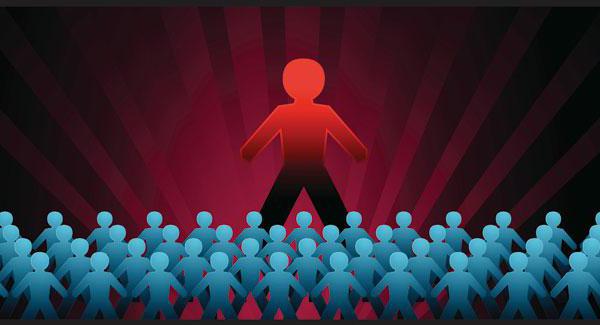Adolf
Hitler, Joseph Stalin, Mao Zedong, Augusto Pinochet, Pol Pot ... these are just
a few of the brutal dictators who have left their dark mark on human history.
Their names have become synonymous with repression, mass murder and human
rights abuses. The sad truth is that history abounds with examples of
oppressors, sadists, sociopaths and war criminals who become heads of state and
mock the people who rule.

However,
most people have not even heard of some of the most brutal dictators. Here are
some of them:
✔️ In European countries
Josef Tiso
Tiso was a Catholic priest and president of Slovakia from 1939 to 1945. At that time, the country was a satellite of Nazi Germany. Tiso organized mass deportations of Jews to concentration camps (when he came to power, there were about 88,000 Jews in Slovakia, and only about 5,000 remained there after the end of World War II). He brutally suppressed the popular uprising against the fascist government in 1944. Several thousand Slovaks died during the riots.
Matthias Rakoshi
Known by the nickname "Stalin's Best Student", Rakoshi ruled Hungary from 1945 to 1956. He created a repressive regime similar to that of the USSR. While Rakoshi is in power, about 350,000 people accused of being supporters of the opposition have been arrested or killed. After Stalin's death in 1953, Moscow called on the Hungarian leader to step down, arguing that the regime he headed was "too brutal" and hampered the country's economic development. Rakoshi was removed from power three years later.
✔️ In Asian countries
Horloogiin Choibalsan
Another dictator inspired by Stalin's atrocities. Choibalsan ruled Mongolia from the 1930s until his death in 1952. He was responsible for the deaths of tens of thousands of people, most of whom are accused of being opponents of the regime and threatening the country's stability. Choibalsan also took an active part in building the state apparatus in North Korea, and Kim Il Sung himself considered him his idol. The Mongol leader died in Moscow in 1952 after a serious illness.
Le Duane
Although he was never Vietnam's head of state, for about two decades Le Dwan was the most influential figure in the country's ruling communist regime. He ordered the imprisonment of approximately two million people believed to be opponents of the government. Another 800,000 have been forced to leave the country. Le Dwan is also the initiator of a failed attempt to introduce a centralized economic system in Vietnam.
Yahya Khan
Yahya Khan is a World War II general and veteran who ruled Pakistan between 1969 and 1971. Those two years were extremely difficult for the country - it was defeated in its war with India, and East Pakistan gained its independence and became the People's Republic of Bangladesh. . Meanwhile, Khan is leading the massacre of about half a million people, most of them Bengalis. His brutal rule has forced 10 million people to flee the country and flee to neighboring India. Khan was ousted in 1971 and spent the next eight years under house arrest. He died in 1980 in Rawalpindi.
✔️ In countries of the continent of Africa
Michelle Mycombero
Mycombero was only 26 years old when he became prime minister of Burundi as a result of a coup led by him. He quickly ended the country's monarchy and sent the 19-year-old king away. The prime minister is from the Tutsi ethnic group and has therefore appointed many of its representatives to senior positions in the government and army. This causes discontent and leads to rebellion. It was suppressed in a particularly brutal manner, killing between 150,000 and 300,000 people. Mycombero was overthrown in 1976, but because of the atrocities committed during his rule, tensions between Tutsi and Houthi persisted and even led to the outbreak of a civil war that lasted from 1993 to 2005.
Francisco Macias Nguema
The first president in Equatorial Guinea's history was a brutal dictator responsible for the death or expulsion of nearly a third of its 300,000 population. During his rule, Nguema issued a law introducing the death penalty for anyone who threatened his authority. Attacks on him are punishable by up to 30 years in prison. In 1975, by order of Nguema, all schools in Equatorial Guinea were closed. Foreigners who have visited the country describe it as "Africa's concentration camp". The dictator was executed in 1979 after being overthrown in a coup organized by his nephew Theodoro Obiang Nguema Mbasogo.
